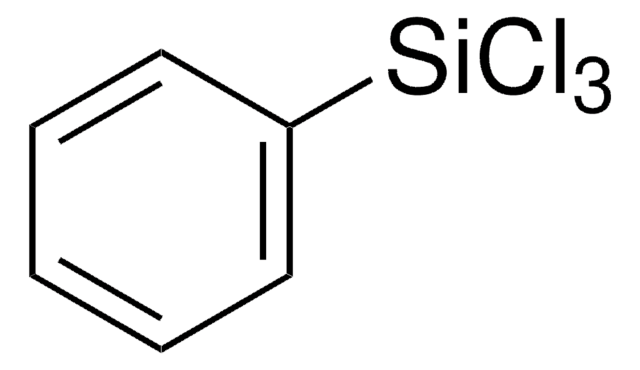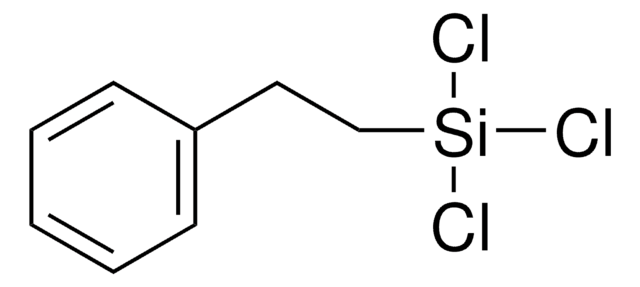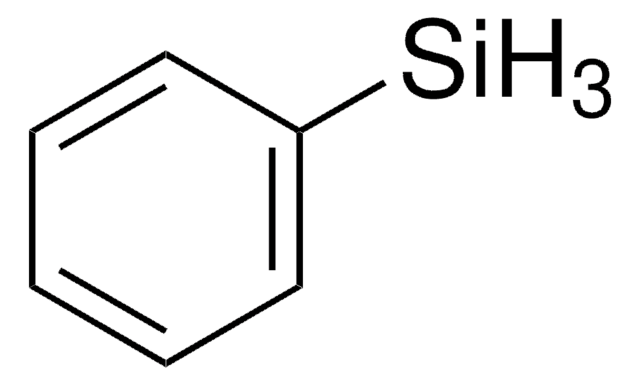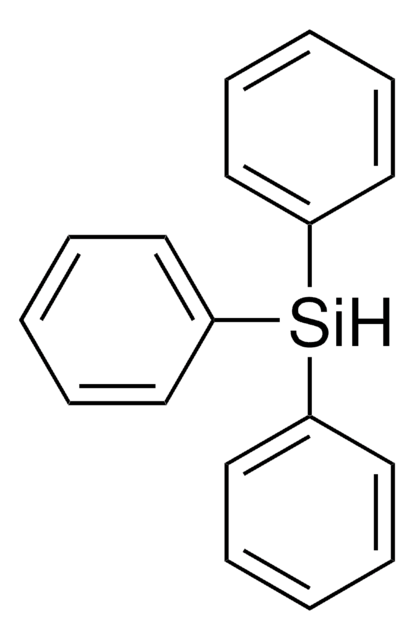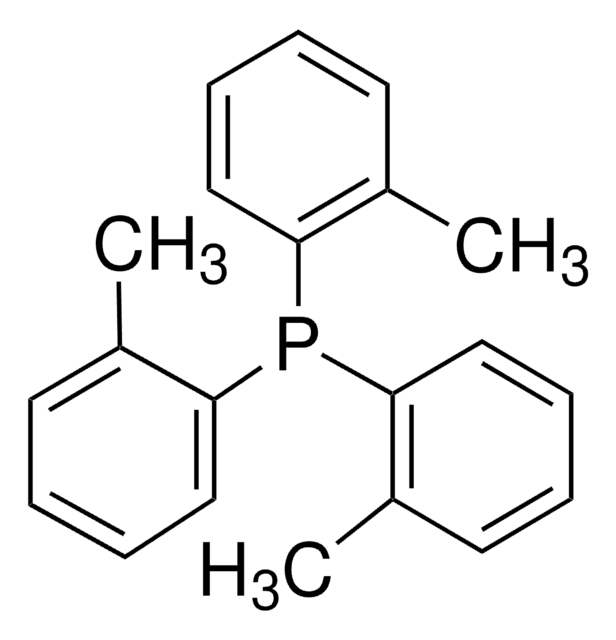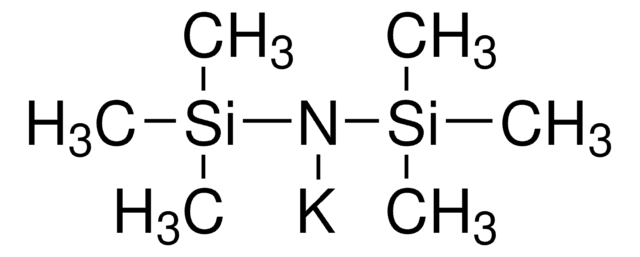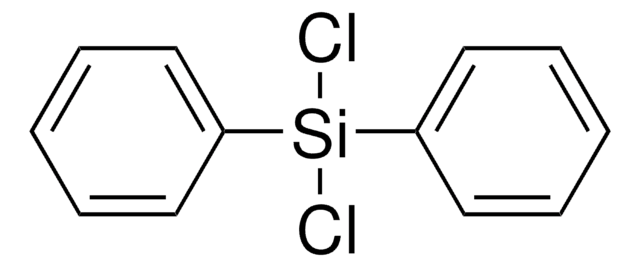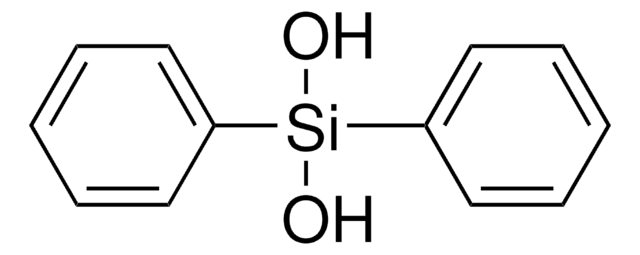All Photos(1)
About This Item
Linear Formula:
CH3C6H4SiCl3
CAS Number:
Molecular Weight:
225.57
EC Number:
MDL number:
UNSPSC Code:
12352002
PubChem Substance ID:
NACRES:
NA.22
Recommended Products
Quality Level
Assay
95%
form
liquid
refractive index
n20/D 1.5240 (lit.)
bp
218-220 °C (lit.)
density
1.273 g/mL at 25 °C (lit.)
SMILES string
Cc1ccc(cc1)[Si](Cl)(Cl)Cl
InChI
1S/C7H7Cl3Si/c1-6-2-4-7(5-3-6)11(8,9)10/h2-5H,1H3
InChI key
WOMUGKOOLXQCTQ-UHFFFAOYSA-N
Application
Self-assembled monolayers (SAMs) of p-tolyltrichlorosilane (TTCS) were formed on flexible polymer substrates. p-Tolyltrichlorosilane copolymerized with methylphenyldichlorosilane was grafted on silicon to introduce a structural defect.
Signal Word
Danger
Hazard Statements
Precautionary Statements
Hazard Classifications
Eye Dam. 1 - Skin Corr. 1B
Supplementary Hazards
Storage Class Code
8A - Combustible corrosive hazardous materials
WGK
WGK 3
Flash Point(F)
210.2 °F - closed cup
Flash Point(C)
99 °C - closed cup
Personal Protective Equipment
dust mask type N95 (US), Eyeshields, Gloves
Choose from one of the most recent versions:
Already Own This Product?
Find documentation for the products that you have recently purchased in the Document Library.
Fabrication of self-assembled monolayers (SAMs) and inorganic micropattern on flexible polymer substrate.
Langmuir, 20(8), 3278-3283 (2004)
Effects of structural defects on hole drift mobility in aryl-substituted polysilanes.
Philosophical Magazine Part B, 79(10), 1631-1645 (1999)
Ignazio Blanco et al.
Molecules (Basel, Switzerland), 25(13) (2020-07-02)
Novel polystyrene (PS)/polyhedral oligomeric silsequioxanes (POSSs) nanocomposites were designed and prepared by in situ polymerization, using, for the first time, three-cage POSS molecules. The synthesized compounds were first characterized by Fourier transform infrared spectroscopy (FTIR) and 1H NMR spectroscopy to
Our team of scientists has experience in all areas of research including Life Science, Material Science, Chemical Synthesis, Chromatography, Analytical and many others.
Contact Technical Service